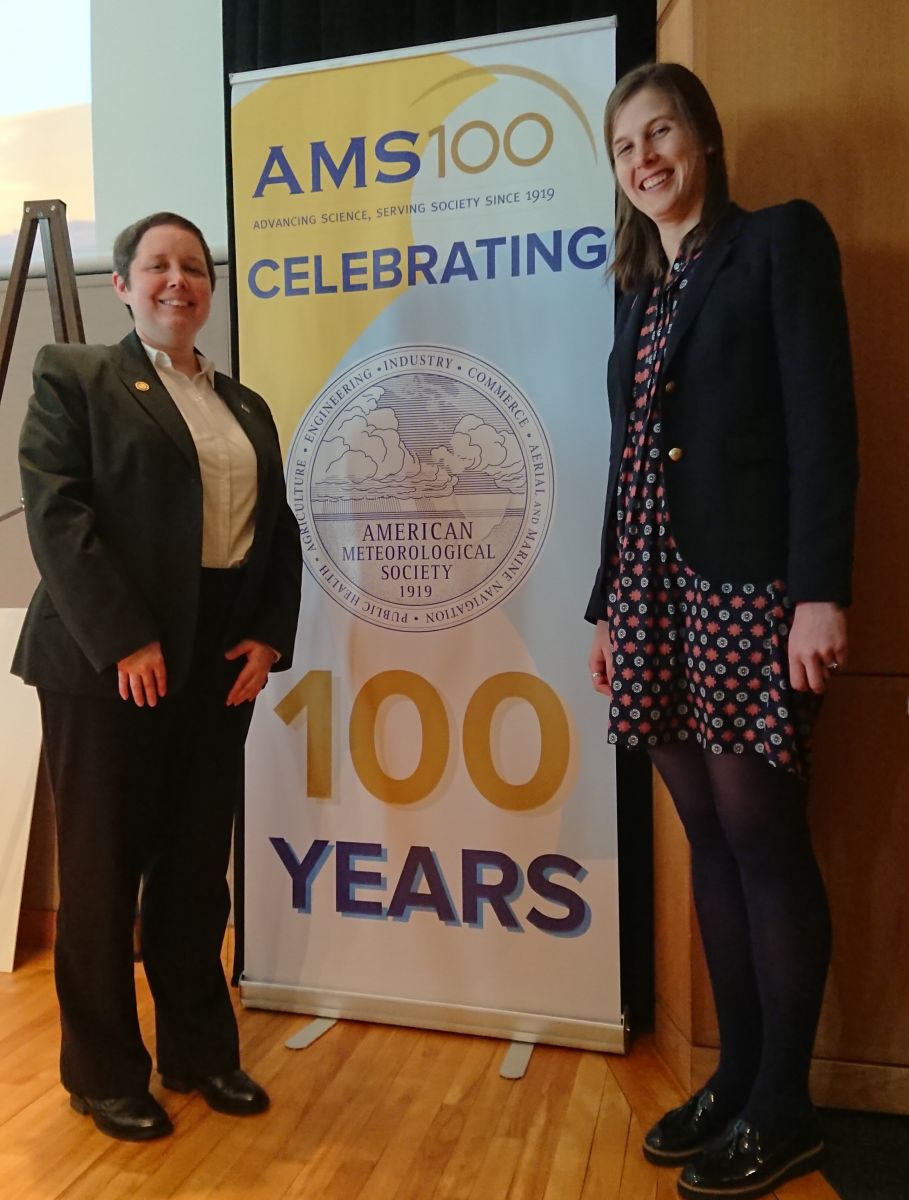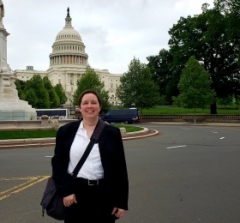Knauss legislative fellowships in Congress help build careers — and they're fun and educational. See our video and fact sheet for details.
Changing Course: From Ocean Research to Ocean Policy
In January 2019, I was a graduate student at the University of Maryland Center for Environmental Science. I came to work each morning in jeans and a t-shirt and focused on my research: modeling the biology and physics of floating seaweed. I had spent years focused on increasing the scientific understanding of my little corner of the oceanography world, but soon my life would change.
When February came around, I became a Sea Grant Knauss Marine Policy Fellow. Now I wear a suit to work at the office of the Oceanographer of the Navy in Washington D.C. Instead of focusing on relatively narrow research questions, I am responsible for a portfolio that includes a range of issues across oceanography, meteorology, navigation, and precise time. During the transition, I felt completely out of my depth, but in the best possible way. Even now, a few months into my fellowship year, every day is full of learning opportunities and chances to push myself out of my comfort zone.
I studied oceanography because I have always loved the ocean and the strange and wonderful creatures that live there. My graduate research was very enjoyable, but over time I realized that learning about the ocean and advancing scientific knowledge wasn’t enough for me. I wanted to take that knowledge and apply it in a way that helps ensure that future generations can continue to benefit from our ocean resources.

Although I feel strange not doing scientific research anymore, the policy world is just as rewarding. I still get to use much of the training and knowledge I had gained as a doctoral student, but now I apply it in much broader ways. For example, in my research I used computer models to study how seaweed moves and grows in the ocean. Now I’m using that background to help craft a strategic plan that might determine research priorities for modeling work across multiple federal agencies. My research has given me context and this new position lets me translate that into meaningful action.
In both the research and policy worlds, the people I get to work with are one of the biggest benefits of the job. The broad work portfolio that came with my fellowship brought with it many new colleagues and collaborators. One worry I had about the fellowship was that working on science policy in the current political climate might be demoralizing. I shouldn’t have worried at all. The people I have encountered in this field are so smart, experienced, and dedicated that I am actually more optimistic about the future of our oceans than I was when I was a student. Not long after starting my fellowship I attended the Consortium for Ocean Leadership’s 2019 Public Policy Forum. This event not only gave context about the history of ocean policy in the United States, but it also showcased some of the many people working to improve it for the future. I was especially proud to be representing my host office as Christopher Ekstrom, the Navy’s deputy oceanographer, spoke about some of the ways in which the Navy participates in interagency efforts that help the wider oceanographic community.
Shortly after that I was also fortunate enough to attend the American Meteorology Society’s Washington Forum. It was incredibly helpful for me to learn more about policy issues and priorities from a weather perspective rather than from my ocean background. Earth systems science encompasses many fields like oceanography, geology, and meteorology and atmospheric science. This meeting reinforced how these fields share many of the same challenges, like maintaining satellite infrastructure, providing appropriate capabilities for storing and sharing large data sets and model code. I also learned about some of the trade-offs we have to make as our technology advances. For example, some of the frequencies that telecommunications companies want to use for 5G wireless are right next to the bands used by weather satellites. Everyone wants faster Internet, but behind the scenes we are working hard to make sure that it doesn’t come at the expense of accurate weather forecasts that can save lives and property.
Ultimately, my hope that the work I am doing is guiding decisions that affect all of us keeps me motivated and engaged every day. And best of all, even though I’m no longer doing scientific research, I’ve never stopped learning.
Photo, top left: Although I am slowly getting used to living and working in D.C., it is still humbling being so close to such a rich part of our nation’s history. Credit: Zoraida Perez-Delgado
See all posts to the Fellowship Experiences blog



